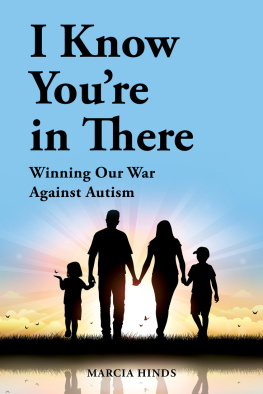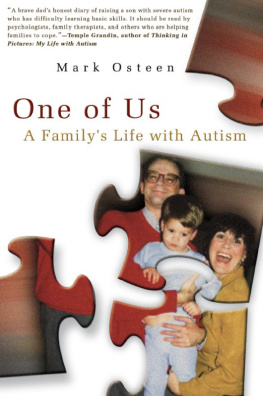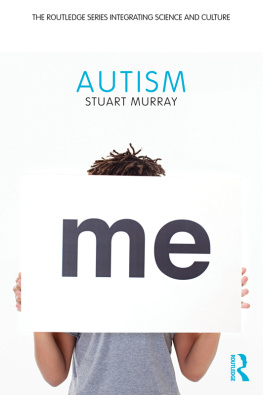A Note on the Author
Kamran Nazeer was born of itinerant Pakistani parents and has lived in New York, Jeddah, Islamabad and Glasgow. He studied law but decided not to become a lawyer. By the time he completed his PhD thesis, he had decided not to become an academic. On leaving Cambridge, he was recruited into Her Majestys Service and now works as a policy adviser in Whitehall. His writing has been published in newspapers and magazines. Send in the Idiots is his first book.
Chapter 1
You talk, I talk, you talk, suggested Andrs sister, Amanda, as we watched Andr walk off fiercely, leaning forward as if into a gale, his hands already withdrawn into the sleeves of his sweatshirt. I was making a mess of both sitting and standing, not knowing whether to go after him or to stay. I eventually gave my bag a gentle kick and dropped back into my seat. I had yet to clear security and Andr had taken my boarding card. Hell need a few minutes, added Amanda. He was gone from view.
I had spent three straight days living with Andr in Boston and this had happened six times. I was annoyed at my indiscipline and my inability to anticipate his outrage. On the second occasion, two glasses had been flung against a wall. On the third, he had locked me in the bathroom. After that, I stopped trying to apologize immediately after it happened. That simply made it worse.
I didnt remember him having a temper. When I thought back to Andr at our school in New York, mostly I remembered how much bigger he was than me; sitting next to him in front of the school, as we waited for our parents to pick us up, I would try to stretch myself over three steps just like him. I remembered asking him his shoe size as his feet seemed so much larger than mine. I remembered peeking at his math books, which were more complex than mine. Andr was older than most of the other children at our school but he sat in the same classes as we did. As I learnt in Boston, he didnt join an ordinary school until he was ten years old. Even then, his use of language was limited and sometimes he groaned very loudly when he could not express himself.
Fluency with language is a common problem for autistic children. The central objective of many of our lessons in Ms. Russells class was developing our skills of conversation. There were always lots of toys at the school. But playing with those toys was not straightforward. We were regularly asked to talk about the game that we were playing or to try to describe the game that another child was playing. Games are very useful for developing language. Games rely on the making of categories, as does language. Games are based on the relationship of one thing to another, as is language.
For example, if you are faced with a square peg and a round hole, you will only try forcing the peg with your toy hammer for so long. Eventually, when you suffer this interruption, you have to explain, and in our case, it would be to a teacher, that the hole is not square, and that not only leads to a new word, circle, and an understanding for the first time of a firm difference between these two shapes, it provides an important realization: that the world may not fit into the categories that you already know about. In any case, negatives are an eloquent form of expression, providing opportunity for subtle distinctions. If you were walking through a deserted house after midnight, you wouldnt say to your friends, Im fine; youd say, Im not scared.
Conversation is obviously essential to our lives, and to our minds. We form our views of ourselves, as well as our views about the world, in conversation with others. Yet the language that we use to conduct conversation is in itself a highly complex set of structures. We do not necessarily know this as children, but we know it as adults whenever we try to learn a new language. Autistic individuals, though, often know it even as children. They find the acquisition of language in any form very difficult. Conversation is harder still, for people say things in different ways, you need to comprehend tone and gestures as well as context and the words used in order to get to the meaning.
Andr had found an unusual way of overcoming his difficulties with conversation. For several years, he had been training as a puppeteer. He made his own puppets with wood and string. He put on shows in his neighborhood. And his use of the puppets was expanding. When he spoke on the telephone, one of the puppets was usually in his lap. He was a member of a chess club and he attended the meetings with Boo. He had been turned away from a speed-dating evening because he arrived with a new puppet he had just made called Sylvie.
The rule was that you couldnt interrupt one of his puppets. You could interrupt when Andr was talking though thered be a pause as he adjusted and youd feel a little bit like you had stepped on his foot but you certainly couldnt talk across one of his puppets. I had done it for the sixth time in the airport just as I was about to say goodbye to him and his sister. He had snatched my boarding card and disappeared.
How long do you have? asked Amanda.
Id like to be at the gate already, I replied. She smiled and shrugged her shoulders.
*
I was introduced to Boo the first night that I arrived.
This is Boo, said Andr, as I peered into a glass of water that I had just poured from the tap.
Dont drink that, added Boo. I looked up. The voice was different. It wasnt an impersonation, he wasnt speaking with an added accent, or in a falsetto, but Boos voice sounded different. Andrs voice was flatter in tone or it seemed to come from deeper down his throat. Amanda described it later as sounding like the inside of a bucket. Andr laughed at that. Boos voice was no deeper or higher in its pitch, but it rose more often, especially at the beginning of words. Andr had told me about the puppets on the phone, before I arrived in Boston, but I hadnt guessed that he would introduce me so swiftly or that the voice would be different. Do you know the results of a chemical analysis that was conducted on a similar glass of water? continued Boo. I shook my head.
We wont start that, smiled Andr, opening the fridge door with his other hand and indicating a filter jug.
Andr?
Yes?
No, wait, Boo? I was testing.
Make up your mind, buddy, exclaimed Boo. Andr grinned. It was hard to believe that he wasnt deliberately trying to make me feel uncomfortable for the sake of his own enjoyment.
Give me one good reason why I shouldnt drink this glass of water, I asked. Or one very much like it.
Arsenic, replied Boo. Buddy, thats reason enough.
Really?
The arsenic content of tap water in American cities has been growing steadily. Its a scandal. Theres more arsenic in that glass of water than in sixty per cent of light industrial waste.
Now thats not actually true, is it? I countered.
Boo shook his head, conceding the point.
You shouldnt have gotten him started, remarked Andr with a smile. He shook the strings off his fingers and put the puppet down on the counter. Boo was well-made. Probably of birch. Quite small, no more than six inches tall. The strings were thin and colorless. He wore a hat and looked vaguely Amish. Andr poured me a glass of water from the jug in the fridge.
You really dont drink tap water? I asked. I wondered whether filtering the water was part of a routine. Autistic people often developed complex routines for straightforward tasks. Every time I showered, for example, I rubbed the different parts of my body in exactly the same order.
I dont like the taste, he replied, heading into the living-room. I followed.
*
I hadnt seen Andr in around twenty years. His father had been a banker for a long time, same as my dad, and they met up from time to time, whenever they happened to be in the same city, exchanged theories on oil prices and stories about corporate debt. But Andr and I hadnt met since I left the school in New York in 1984, at the age of seven, when my family moved away.
Next page










